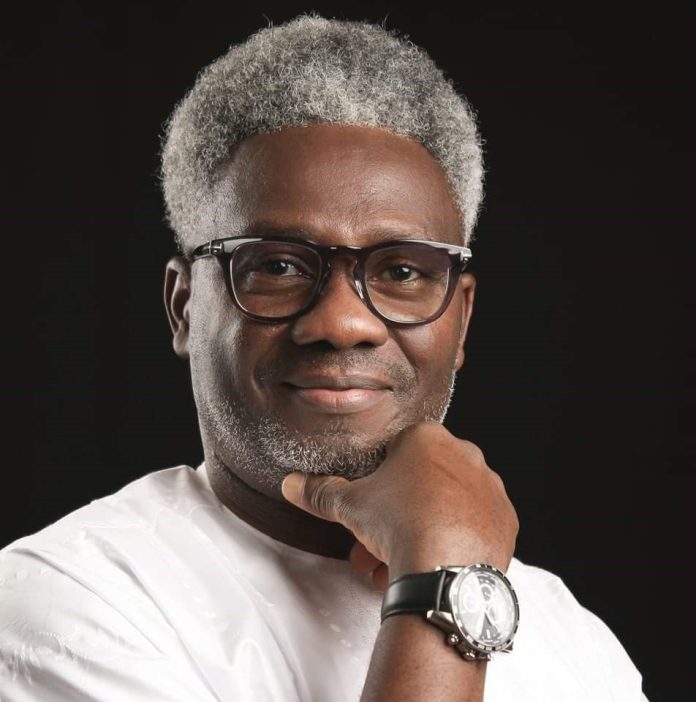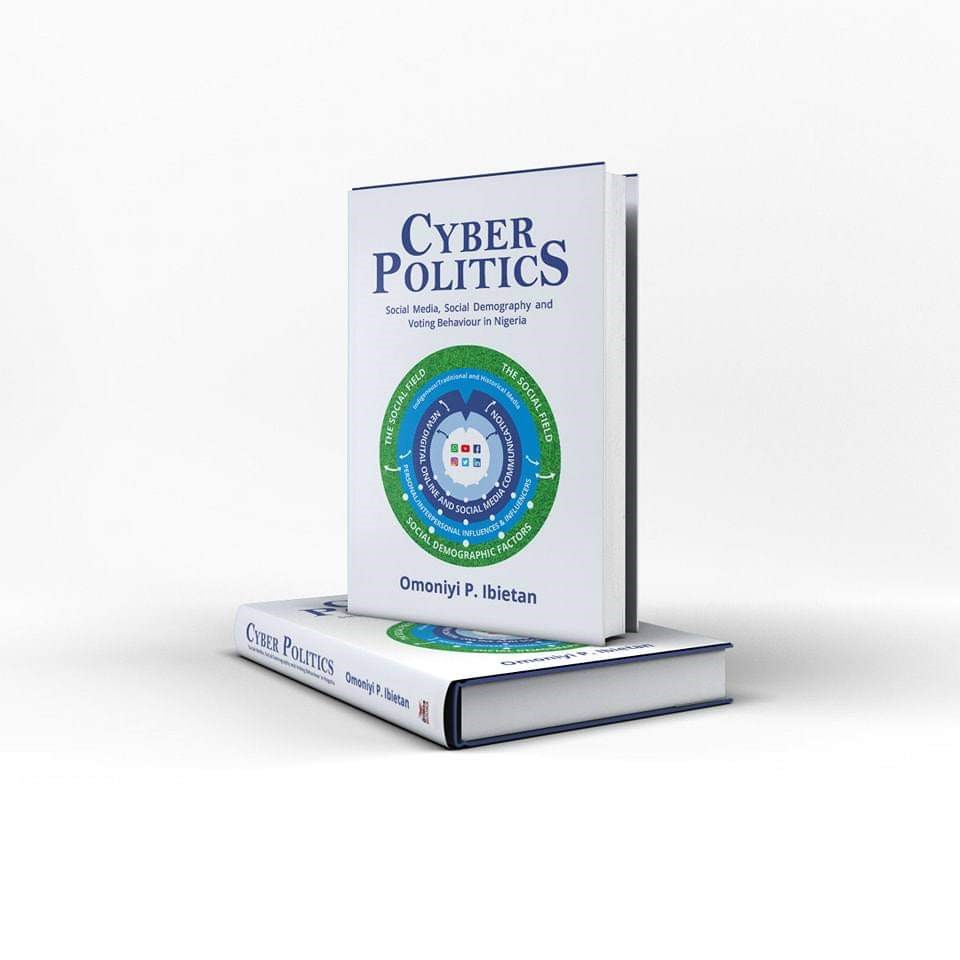Executive Vice Chairman/CEO, Nigerian Communications Comission, Dr. Aminu Maida, says Dr. Omoniyi Ibietan’s path-breaking book on Cyber Politics: Social Media, Social Demography, and Voting Behaviour in Nigeria, has added huge insightful value to understanding the interactions between politics, social media networks and other variables that influence the behaviour of voters in a democracy.
He described the book as broaching a radical new territory in bridging psephology (i.e. the study of elections) and communications scholarship through an examination of the interface between social media networks and voting behaviour in the country.
According to him, the book draws its insights from a deeply methodical study of Nigeria’s 2015 presidential election, unearthing the intersections of social and demographic factors, digital social mediation and the remarkable impact of these variables on the voting behaviour of the electorate.
Maida, made this submission at the special Book Reading and Further Reviews of the book at the Universiity of Ibadan on Thursday.
“Dr. Ibietan’s book speaks to the reality of how the demographics of voting is now in favour of digital natives, whose engagements are set to upend the traditional media approaches, hence the great value in seeking an understanding of the growing interface across cyber politics, social media networks and social demography,” the NCC boss further noted.
Ibietan is the Head, Media Relations Management at the Nigerian Communications Commission.
“Without any doubt, the Internet and its associated technologies and tools, including software applications, have created some of the most radical possibilities in the human experience, particularly in the last decade.
“These have certainly extended the frontiers of human freedoms and expression, while similarly enabling innovation across different forms of utilisation, and more so serving as catalyst to the ability of citizens to engage with political processes – for good and for bad,” he observed, he said.
He further explained that the increased access to the Internet and broadband, alongside the wider uptake of social media as essential to human reality, have made the interface between these platforms and elections a lot clearer with this being especially evident in the last few electoral cycles, whether in the United States, Europe, or Nigeria.
“The 2008 presidential election in America could be considered as the watershed moment for a new form of voting behaviour, evolving with the widespread usage of platforms like Facebook, MySpace, YouTube, podcasting and mobile messaging in the communication of political interests with citizens.
“The referenced national polling presented one of the most significant evidence of how social media use can shape the course of an election, having the then political opposition gaining huge mileage from its ability to deploy social media platforms towards shaping and controlling public debates, and hence triumphing at the ballot.
‘Most significantly, the cutting edge of this vibrant scholarly endeavour is its proposal of a bold new methodology and approach to communications, described as the Channel-Factor Model, which situates the relationship among social media and other variables within a political environment. It is a framework for re-engineering political communication in Africa that is as radical as it is innovative,” Maida submitted.
Also speaking at the event, a professor of Media and Society and Vice Chancellor, Federal University, Kashere, Gombe State, Umaru A. Pate, described the book as a positive addition to the growing body of literature in the area especially as it gives the Nigerian context.
While recommending it as a worthy book for all students of communication studies, political science and allied fields, Pate, who is the President, Association of Communication Scholars and Professionals of Nigeria (ACSPN), said a cursory reading of the book indicates that the author has been able to achieve the objectives of contributing to the conceptual and empirical dimensions of the subject in the context of political communication.
He therefore expressed confidence that Nigeria’s political tacticians, gladiators and other scholars of the interface between society, information and communication technologies will find the text appropriate in understanding the strategies and impact of the social media in Nigerian politics.
Prof. Peter Esuh, Dean, Faculty of Communication and Media Studies, University of Uyo, said the book is a significant addition to the ongoing discourse on the influence of technological advancements on societal progress.
As a renowned scholar known for his intellectual prowess and activism, he said Ibietan’s work has consistently been commendable, adding that the notable Book of Reading is a testament to his innovative thinking and scholarly contributions.
A testimonial on scholarship and commitment
Meanwhile, Prof. Abiodun Salawu, North-West University, South Africa, who supervised Omoniyi Ibietan’s doctoral thesis, described the author as a testimonial on scholarship and commitment.
He said the author was very conversant with the literature of the study, noting, “I must say that I learnt from the literature he used.
”Another of his strength was that he was able to do effective academic writing. This made reading his work not tortuous but exhilarating.
“He was dedicated to the work that he took a year leave from his place of work to come over to Mahikeng in South Africa to exclusively focus on the study. I can say that the study was effectively done within this one year.
”With the thesis turned into a book, I believe the ideas, findings and recommendations contained therein are now made available to a wider readership.”

























